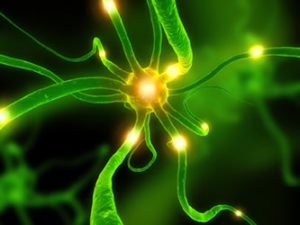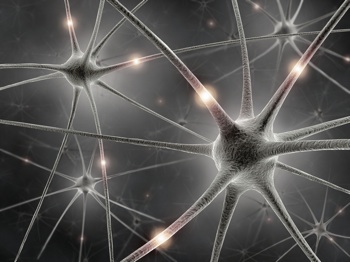 Psychoneuroimmunology or PNI, is the medicine of the 21st century, the science that over the last 30 years has gained increasing recognition for being able to demonstrate the link between one’s thoughts and moods and their effects on the central nervous system and the immune system. For example, mood states like sadness, depression and anger generate corresponding hormones and a range of other chemicals which adversely affect the immune and central nervous systems. We can go so far as to say that the body’s cells become sad, depressed angry etc. because each cell within the body responds very precisely to the thinking, feeling aspects of the individual. Of course cells also respond to the environment i.e. pollution, heat, cold etc. but the environment that they respond to first and foremost is the immediate environment of thinking and feeling. This is a cell’s most intimate relationship and its behaviour and function can be mapped to an individual’s moods, attitudes and perceptions.
Psychoneuroimmunology or PNI, is the medicine of the 21st century, the science that over the last 30 years has gained increasing recognition for being able to demonstrate the link between one’s thoughts and moods and their effects on the central nervous system and the immune system. For example, mood states like sadness, depression and anger generate corresponding hormones and a range of other chemicals which adversely affect the immune and central nervous systems. We can go so far as to say that the body’s cells become sad, depressed angry etc. because each cell within the body responds very precisely to the thinking, feeling aspects of the individual. Of course cells also respond to the environment i.e. pollution, heat, cold etc. but the environment that they respond to first and foremost is the immediate environment of thinking and feeling. This is a cell’s most intimate relationship and its behaviour and function can be mapped to an individual’s moods, attitudes and perceptions.
The other intimate relationship that one needs to consider in this equation is food. Everything we eat, having passed through the various digestive processes, eventually enters the bloodstream which is the life force of the body. The blood travels on average around the body 3 times per minute. In other words, about every 20 seconds, the blood in our bodies has touched every part of the organism. This amazing fact helps us to realise the ancient concept ‘we are what we eat’ is indeed true, because what we eat permeates our being in such a deep way, that it affects every function and organ of the body, including the brain, which must therefore have a bearing on thought processes, moods and feelings. So the subtle and powerful relationship between food and mood also needs to be understood.
PNI has helped to accelerate our understanding of the intimate relationship between mind and body and this is why our approach at Reach is holistic and integrative because it embraces the mind/body relationship and all their governing principles. If this important dynamic is overlooked then the way we are able to function or indeed help others find their own solutions, is severely hampered. We cannot ignore that what we eat affects the body and the way we think and feel. Conversely we cannot ignore that the way we think and feel affects the body. It is by working with this unique and subtle relationship that true health can be achieved. A good example of this subtle relationship is when mood states like happiness, enthusiasm and positivity trigger the hypothalamus (the mood centre of the brain) to produce a range of hormones and other supporting chemicals which enhance every function in the human organism. Understanding this process helps us to see that personal growth is a journey most effective where mind and body work as one.
PNI is illuminating what the ancient civilisations clearly understood; that we are subtly and intimately connected with our biological environments. The subtle relationship of cause and effect takes place at every single level; between food and mood, between emotions and health and between mind and body. Once this relationship is understood the individual can see that all actions have consequences and therefore is able to make informed choices often leading to better outcomes.
Embracing this subtle science will enable you to reclaim healthy control in your world. So, sit back on the throne of self-respect and become the master of yourself. Stop giving away your energy and understand you really do have the power to change your reality.
PNI 2
Psychoneuroimmunology (PNI) is a fascinating and amazing science that in so many ways merely explains the obvious. It has helped us to illuminate that what we think in our minds has a biochemical impact on our brains which in turn affects our bodies’ systems. It is only latterly that the developed world has begun to accept what the eastern part of the globe has accepted for centuries.
The mind-body connection, a deep subtle relationship, is the primary relationship that we have with the physical world. It is so deep, subtle and relevant to the quality of our lives and is the reason why a holistic approach to therapy is a pivotal aspect in the process of self-improvement. Once we understand that what we think has consequences on our physical anatomy, then we are more likely to be inspired to change our thought patterns. If we realise we are, to a large extent, able to carve out our own destinies and that this process starts in our minds, we are more likely to pursue that course of action.
The brain produces many hormones, neurotransmitters and other substances and via a series of chemical and electrical impulses, all functions of the body are carried out or stimulated by the brain. These chemical and electrical impulses carry enormous numbers of messages during the course of any one day, through the pathways of the body, ensuring all the vital organs are able to perform their many functions i.e. digestion, detoxification, repair, thermostatic control, sight, hearing, etc. Many of these functions have what could be called an ‘optimal state’ where the organism performs the necessary actions to maintain its own survival in the most efficient way. In fact the body always performs actions which offer us the best opportunity of survival. It knows no other way. All the organs and the functions of the body can be and are influenced by our thought processes. This is what PNI has enabled us to clearly see and so the concept of psychosomatic illness is no longer just a theory because there is now substantial evidence to support it. Our thoughts can distort any function in the body and the huge topic of stress is a first class example because we can all see the consequences of stress in ourselves and in our society.
 It is not only stress that affects our bodies and the way our vital organs work but mood also has a significant impact : happiness, contentment, peace of mind, depression, anger, impatience, just to name a few. In fact, every thought and every emotion has a biochemical consequence. The messengers in our bodies, more commonly known as hormones, actually correspond to the particular emotion we are feeling. So for example, a positive, euphoric state is connected to substances such as dopamine, endorphins and enkephalins. Emotions such as depression, anger or other self-limiting states cause the body to produce a variety of toxic chemicals such as adrenoachrome (which is a conversion from the hormone adrenalin). In fact, all the hormones we produce in a positive, euphoric state can be converted, by our negative moods, into substances which depress the central nervous system and the immune system. So, it is vital for us to understand that the thoughts, feelings and moods we experience have a direct consequence on the brain and in turn on the body which impacts on our overall health.
It is not only stress that affects our bodies and the way our vital organs work but mood also has a significant impact : happiness, contentment, peace of mind, depression, anger, impatience, just to name a few. In fact, every thought and every emotion has a biochemical consequence. The messengers in our bodies, more commonly known as hormones, actually correspond to the particular emotion we are feeling. So for example, a positive, euphoric state is connected to substances such as dopamine, endorphins and enkephalins. Emotions such as depression, anger or other self-limiting states cause the body to produce a variety of toxic chemicals such as adrenoachrome (which is a conversion from the hormone adrenalin). In fact, all the hormones we produce in a positive, euphoric state can be converted, by our negative moods, into substances which depress the central nervous system and the immune system. So, it is vital for us to understand that the thoughts, feelings and moods we experience have a direct consequence on the brain and in turn on the body which impacts on our overall health.
We simply can’t afford negative thoughts and feelings. The price we pay for them is far too great. It is not just the psychological and emotional problems they cause, but the plethora of physiological difficulties as well. Whatever we are afflicted by, one thing is for sure, the most powerful antedote we have is our thoughts.
Also see: Persuading The Body and Epigenetics
